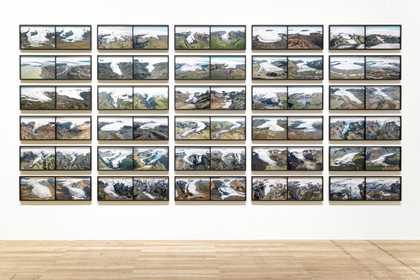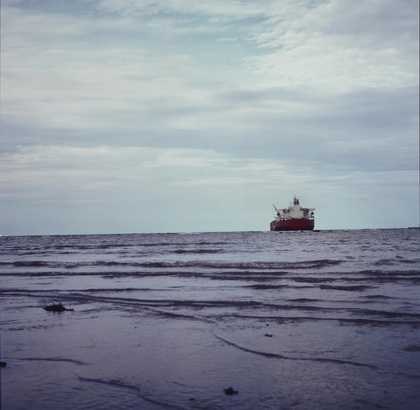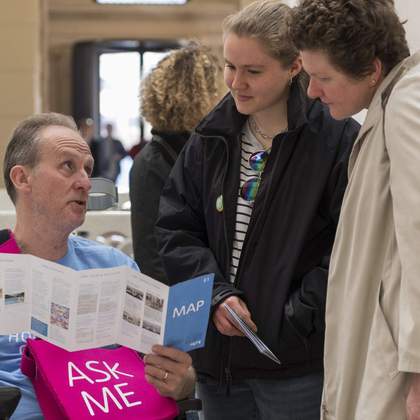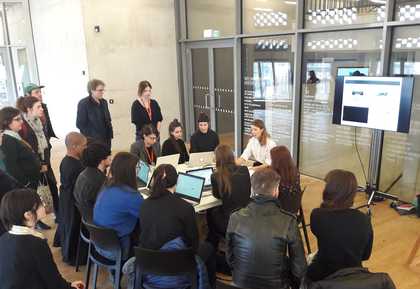AHRC is offering early career researchers the chance to apply for a fully funded fellowship to conduct research at cultural and heritage institutions. Fellowships should start between 1 November 2023 and 1 January 2024 and last between 1 and 2 years (longer if part-time).
To apply you must:
- be an early career researcher
- have either a doctorate in a relevant subject or equivalent professional experience and skills
- have the support of an eligible Independent Research Organisation host
- address an area of interest indicated by your host organisation
- submit an Expression of Interest (EOI) to the cohort coordination and development team (o.cox@vam.ac.uk) by 16 January 2023
- if successful at EOI stage, subsequently co-design your research project with your host organisation.
The full economic cost of the fellowship can be up to £250,000. AHRC will fund 80% of the full economic cost. The budget will be calculated in collaboration with the host institution.
For further information: AHRC early career fellowships in cultural and heritage institutions.
Tate’s chosen research focus for the fellowship
Research that addresses the climate emergency
The climate and ecological emergency is one of the greatest challenges of our time and Tate is committed to continue working towards increasing sustainability, protecting the environment and becoming one of the world’s most sustainable art institutions.
Tate holds its collection of art in trust for the UK, and has a duty to collect, conserve, store and show this collection, providing access (including digitally) to a wide a range of audiences. Key to our future operations is understanding how we can continue this mandate while also contending with the pressing concerns of the climate emergency.
Invitation for expressions of interest
Tate welcomes applications from early-career, post-doctoral researchers (or those with equivalent professional experience) interested in research into the challenges posed by the climate emergency, in relation to current art museum practice, that will further our existing work in this area.
Using Tate as the focus, researchers are encouraged to submit applications that consider new, expanded, cross-disciplinary approaches and models for internationally focused museums: How can we develop new models for art museums in the age of climate emergency? What are the areas that are most problematic in the current models? Proposals should look beyond facilities and estates to collection management, collection care, collecting strategies, digital access, loans of artwork and other pertinent areas to understand how the climate emergency might shape the art museum of the future.
The fellow will be hosted at one of Tate’s London sites, however research may be conducted in relation to any or all Tate sites (Tate Britain, Tate Liverpool, Tate Modern, Tate St Ives and the Tate Stores) and its digital resources.
Potential areas of focus for proposals and indicative research questions could be (not exclusively):
- Collection Care
How can established standards for the care of museum collections evolve due to the climate emergency? For example, this could include considerations of museum lighting or storage.
How could the art museum show and share its collection more sustainably, in terms of shipping, models for movement of art, exhibition copies and shipping materials?
- Digital practice in the museum
How can art museums balance their duty to provide large-scale access to digital collection materials online, while also ensuring they limit their carbon emissions? What values, principles and models could shift to enable this?
- Business models, conventions and institutional practices
How can art museums rethink existing business models, conventions and institutional practices in order to make significant gains in relation to the climate emergency?
What different practical models for exhibitions might emerge in response to a desire to reduce the carbon footprint of art museums?
- Collection strategies
What innovative, sustainable strategies can the museum adopt to allow it to fulfil its duty to build and care for its national collection across the next 50 years?
This fellowship aims to develop important research with real world application, while also providing a valuable developmental opportunity and experience in the GLAM sector for the fellow. Please note that the above questions are just to give an indication of possible research areas for the fellowship. Applicants are also invited to share their proposals for other research areas and questions that are relevant to the overall topic.
Skills we look for in a fellow
Tate wants to ensure fresh perspectives and disciplinary knowledge not commonly found in its museums can be brought to this fellowship in order to progress our existing thinking and approach.
Tate welcomes applications from researchers with a breadth of professional or academic experience, from a range of disciplines including (but not limited to) sustainability studies, economics, museum studies, collection management and conservation, digital or logistics.
Fellows will be supported by host teams throughout their fellowships, however some skill and appetite to work in a large, complex institution will be valuable.
An important outcome of the fellowship research will be the ability for it to inform new practice and have real-world application in art museums.
Timeline and process
The coordination of the fellowship scheme is being undertaken by the V&A.
- Individuals interested in applying for the fellowship will need to first contact Tate or the V&A to explore their idea, then submit an EOI form to o.cox@vam.ac.uk by 16 January 2023
- A panel of Tate and V&A fellowship scheme coordination team members will review all expressions of interest in mid-January 2023
- Following an interview process for shortlisted applicants (indicative timings 6–10 February 2023), one applicant will be invited to co-develop a full fellowship application with Tate to submit to AHRC by 30 March 2023
Please ensure you contact Tate in the first instance to discuss your interest in the programme by emailing international.fellowships@tate.org.uk.
Funding support to successful fellow/s
Any successful fellow to the scheme at Tate will be employed by Tate and receive a salary of £34,463 (in line with equivalent Tate roles) for the duration of the fellowship (pro rata for part time).
In addition, if appropriate or relevant, funding will include relocation costs and research consumables to cover costs related to carrying out the research, including travel, courses or lab access.
Further reading
- Since 2019 (and updated in 2022) Tate has had a publicly available, institutional Research Strategy aligned with the mission and vision. It ensures there is a central commitment to research embedded across Tate.
- Diversity and Inclusion at Tate
- The following resources indicate some of the activity undertaken by Tate which we hope to significantly build on by thinking expansively through this research fellowship. It gives an indication of the thinking so far which has led us to focus on this critical research area and why we are committed to imagining new futures for sustainable practice for Tate and other art museums: Tate Environmental Policy 2021–23 and Tate and Climate Change.





